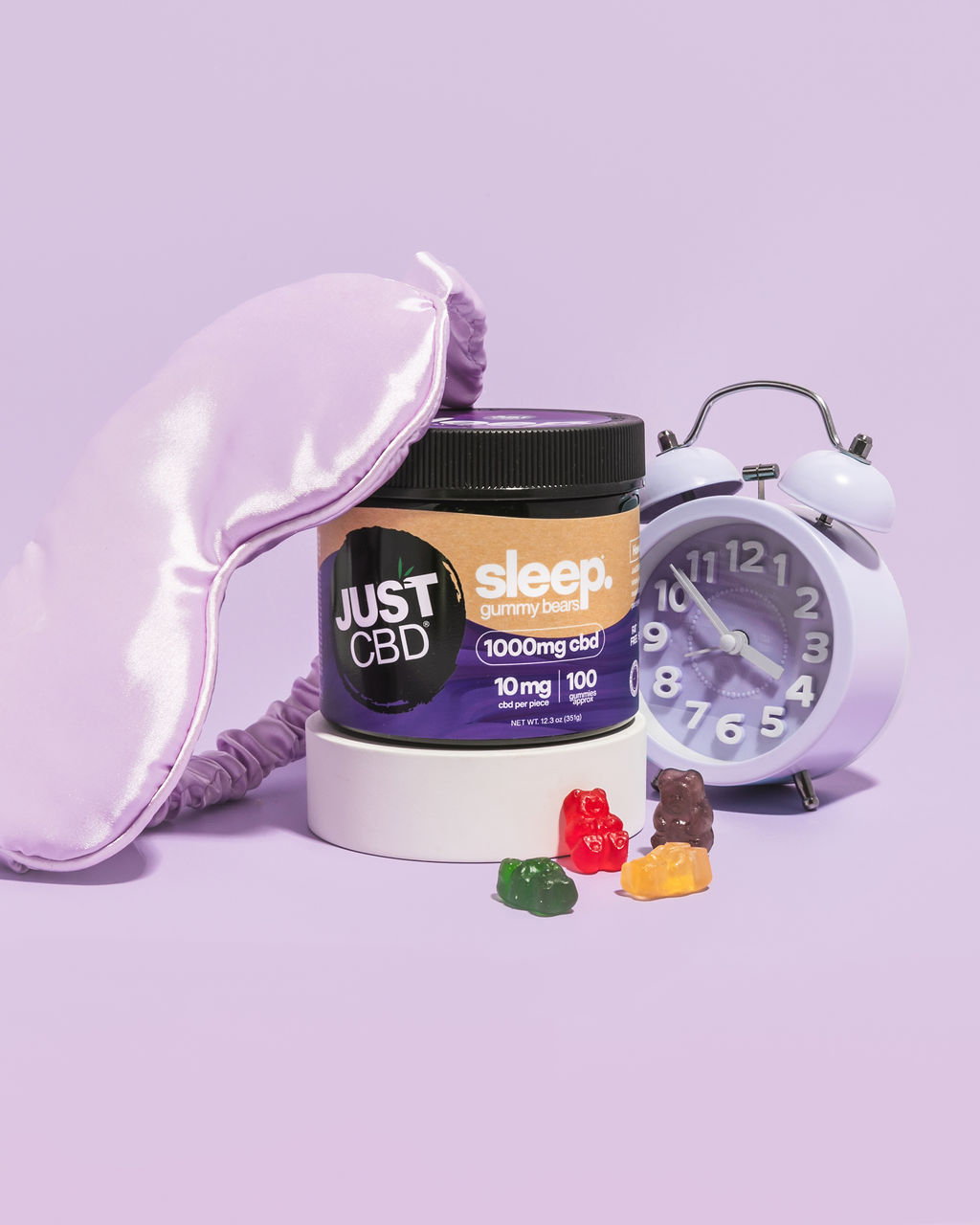Federal Law
Navigating the world of cannabis-derived products can be complex, especially when it comes to understanding the legality of specific items like CBD gummies. Federal law plays a crucial role in shaping this landscape, but it’s essential to remember that state regulations can vary significantly.
The Farm Bill of 2018
The 2018 Farm Bill was a landmark piece of legislation that legalized hemp and its derivatives, including CBD, at the federal level.
Prior to the Farm Bill, CBD was classified as a Schedule I controlled substance under the Controlled Substances Act due to its connection to marijuana. The 2018 Farm Bill removed hemp from this classification, effectively legalizing hemp and its derivatives so long as they contain less than 0.3% THC.
This federal legalization paved the way for a booming CBD industry, with products like gummies becoming widely available.

CBD derived from Hemp vs. Marijuana
Navigating the legal landscape of CBD gummies can be tricky, as regulations vary significantly from state to state and even internationally. At the federal level in the United States, the 2018 Farm Bill legalized hemp-derived CBD products containing less than 0.3% THC. This means that CBD gummies made from hemp are federally legal. However, CBD derived from marijuana, which typically contains higher levels of THC, remains illegal at the federal level.
THC Content Limits
Federal law treats cannabidiol (CBD) derived from hemp differently than CBD derived from marijuana. The 2018 Farm Bill legalized hemp and hemp-derived products, including CBD, at the federal level as long as they contain less than 0.3% THC. THC is the psychoactive compound in cannabis that produces a “high.”
Products containing more than 0.3% THC are still classified as marijuana under federal law and remain illegal.
State Laws
Navigating the legality of cannabis-derived products like CBD gummies can be confusing due to varying state laws. While federal law considers CBD derived from hemp legal, individual states have their own regulations regarding production, sale, and consumption.
Varying Legal Status across States
Navigating the world of cannabis-derived products can be complex, especially when it comes to understanding the legality of specific items like CBD gummies. Federal law plays a crucial role in shaping this landscape, but it’s essential to remember that state regulations can vary significantly.
Here are some key factors that influence the legal status of CBD gummies at the state level:
- Hemp-Derived vs. Marijuana-Derived CBD: The primary distinction lies in the source of the CBD. Products derived from hemp, which contains less than 0.3% THC, are generally federally legal under the 2018 Farm Bill. However, states may have their own regulations regarding hemp-derived CBD.
- THC Content: Even for hemp-derived CBD, states may set limits on the amount of THC allowed in products.
- Age Restrictions: Most states that allow CBD sales impose age restrictions, typically requiring buyers to be 18 or 21 years old.
- Sale and Distribution Laws: Some states have strict regulations regarding where CBD gummies can be sold (e.g., only in licensed dispensaries) or how they are marketed.
It’s crucial to research the specific laws in your state to ensure compliance. Consulting with a legal professional specializing in cannabis law can provide further clarity and guidance.
States with Complete Prohibition
While the 2018 Farm Bill provided a significant legal framework for CBD at the federal level, it’s important to remember that individual states retain the authority to establish their own regulations regarding cannabis-derived products.
- Alabama
- Idaho
- Iowa
- Nebraska
- South Carolina
- Tennessee
These states currently have complete prohibition on CBD products, regardless of THC content. It is important to note that laws and regulations can change, so it is always best to consult with legal counsel or refer to official state resources for the most up-to-date information.
States with Legalization for Medical Use Only
While CBD gummies derived from hemp are legal at the federal level, states have their own regulations regarding cannabis and its derivatives. Some states have legalized medical marijuana, while others have only decriminalized small amounts of possession. States with legalization for medical use only often have strict regulations regarding the production, sale, and consumption of CBD products, even those derived from hemp.
It’s crucial to research your state’s specific laws regarding CBD gummies before purchasing or consuming them.
States with Full CBD Legalization
While federal law provides a framework, it’s important to note that individual states have the authority to enact their own regulations regarding CBD. Some states have chosen to fully legalize CBD, regardless of its source (hemp or marijuana), while others have more restrictive laws.

Currently, there are no states with full CBD legalization.
Other Considerations
Beyond the complexities of federal law, a deeper understanding requires considering additional factors that influence the legality of CBD gummies. These considerations encompass state-specific regulations, international laws, labeling requirements, and potential interactions with existing medications.
FDA Regulation of CBD
Beyond federal and state regulations, there are other considerations that can impact the legality of CBD gummies.
- International Laws: If you plan to travel internationally with CBD gummies, be aware that laws regarding CBD vary widely from country to country. Some countries may prohibit CBD entirely, while others have strict regulations regarding THC content and importation.
- Labeling Requirements: Accurate labeling is essential for CBD products. Manufacturers must clearly state the amount of CBD and THC in each gummy, as well as any other ingredients. Misleading or inaccurate labeling can lead to legal issues.
- Product Safety: While the FDA regulates some aspects of food safety, it doesn’t have broad oversight over CBD products. This means that product quality and potential contaminants can vary significantly. It’s important to choose reputable brands that conduct third-party lab testing to ensure purity and potency.
Labeling Requirements
Labeling requirements for CBD gummies are crucial for transparency and consumer safety. Clear and accurate labeling helps consumers make informed decisions about the products they purchase.
Legally compliant CBD gummy labels must typically include the following:
- A statement indicating that the product contains CBD.
- The amount of CBD per serving and per container.
- Ingredients list, including any potential allergens.
- Manufacturing information, such as the name and address of the manufacturer.
- Warnings or cautionary statements, especially regarding potential interactions with medications or health conditions.
Additionally, labels may be required to state that the product is not intended to diagnose, treat, cure, or prevent any disease. It’s important for CBD gummy producers to stay updated on evolving labeling regulations at both the federal and state levels.

Purchasing from Reputable Sources
When purchasing CBD gummies, it is essential to choose reputable sources to ensure product quality and safety. Look for companies that provide third-party lab testing results to verify the CBD content and absence of contaminants.
Reputable brands will be transparent about their sourcing practices, manufacturing processes, and ingredient lists. Reading customer reviews and seeking recommendations from trusted sources can also help you identify reliable vendors.
Shop CBD Gummies for ultimate stress relief
Grab premium cbd gummy edibles with JustCBD
Bronzed Body Spray Tan
Carolina Wyser
- Xela Rederm Skin Booster Treatments Near Petersham, Surrey - January 14, 2026
- Xela Rederm Skin Booster Treatments Near Chertsey, Surrey - January 11, 2026
- Why The Vista Edge Series Vape Is Gaining Popularity In The UK - January 8, 2026
